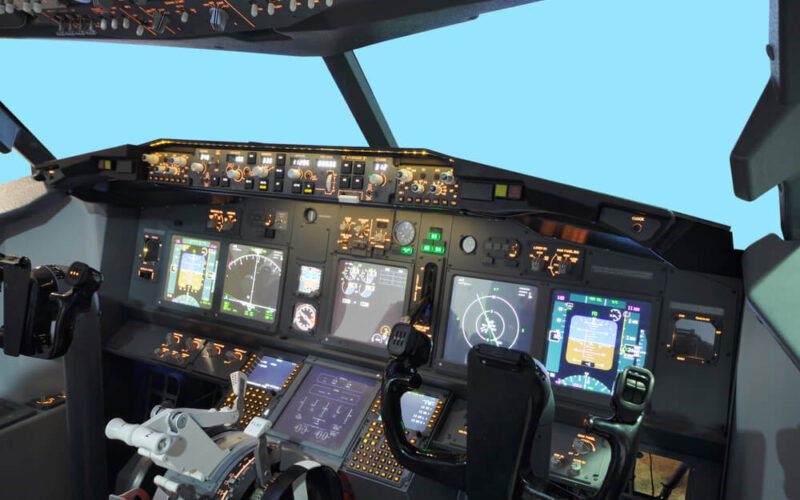Boeing announced that it is recommending additional simulator training for all 737 MAX pilots before the aircraft returns to service. While the manufacturer is taking the initiative, the final decision rests in the hands of the regulators, including the Federal Aviation Administration (FAA).
The interim Chief Executive Officer of the manufacturer, Greg Smith, said in a statement that safety was Boeing’s “top priority”. The confidence of airlines, the flying public and stakeholders was something also “critically important” to the company.
Following the second fatal Boeing 737 MAX crash in Ethiopia and the subsequent groundings, Boeing’s training procedures came under fire. Publications revealed that pilots were approved to fly the newest iteration of Boeing’s most successful narrow-body after a one-hour lecture on an iPad without any simulator training.
Peter DeFazio, the Chairman of the House Committee on Transportation and Infrastructure which is investigating the case, has supported the manufacturer’s decision. At the same time, DeFazio noted that it was “remarkable that it took two deadly crashes, numerous investigations and untold public pressure before Boeing arrived at this decision.”
“[…] Boeing’s business model for the 737 MAX was premised on Boeing’s unreasonable, cost-saving assurance to airlines that pilots qualified to fly a different 737 variant, the 737 Next Generation, should not undergo simulator training to fly the 737 MAX,” continued DeFazio.
A contractual clause between Boeing and Southwest Airlines (LUV) , the biggest customer of the 737 Next Generation and the MAX versions, was also under heavy scrutiny when the-now ousted company CEO, Dennis Muilenburg, testified before the House Committee on Transportation and Infrastructure on October 30, 2019.
Committee members questioned the contractual agreement that Southwest would receive $1 million per plane if the pilots were required to sit in a simulator before being approved to fly the 737 MAX. The contract covered an order for 280 jets of the type. The two parties signed the order on December 13, 2011, a few months after Boeing announced the MAX family.
Potential return to service delay?
If the FAA approves Boeing’s simulator training recommendation before it clears the grounded jet to fly again, it could potentially further delay the return of service date. According to a report by the Associated Press, there are only 34 737 MAX simulators worldwide and Boeing owns eight of them. Yet there are thousands of 737 pilots working for airlines that have already taken up their first MAX’s or are awaiting delivery for the aircraft.
However, it would not be the only hiccup in Boeing’s efforts to return the 737 MAX to the skies. On January 5, 2020, a report revealed that the wiring responsible for the control of the aircraft’s stabilizer could potentially short circuit and replicate the same conditions under which both Lion Air JT610 and Ethiopian Airlines ET302 crashed – by plunging the nose down with no way for the pilots to recover.
Boeing is determining how likely this scenario is onboard a flight.

